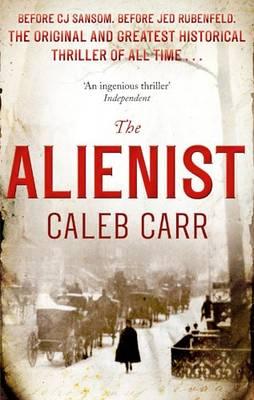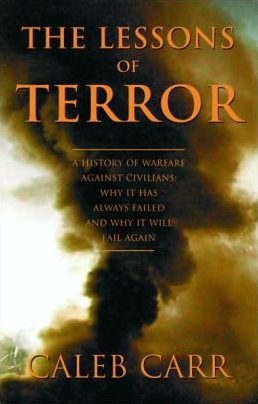Today, March 15, marks the 20th anniversary of The Alienist’s publication. Over the past 20 years, this much loved and groundbreaking novel has been published in 35 different formats and editions, and is now considered a “modern classic”. What an amazing achievement!
A few months ago I asked 17th Street visitors to provide ideas for the best way to commemorate the 20th anniversary, and I received some wonderful suggestions. However, as most of the proposed ideas required a physical presence in New York, and I’m located nine and a half thousand miles away on the other side of the world, unfortunately I had to rule the majority of the suggestions out. So, after lots of thinking, I concluded that perhaps the best way to celebrate the anniversary would be through a new content feature that emphasised time, and thus the idea to recreate The Alienist’s original text based timeline for the site was born.
The new timeline is now up and is fully interactive. It contains maps of key locations for particular dates and chapters, as well as markers for key international, national, and local events, thereby placing the novel’s sequence of events within a wider historical context. A few short film clips from 1896 have also been interspersed in appropriate sections of the timeline. The interactive timeline has a permanent place in The Alienist subsection of 17th Street, but a copy has also been included for interested visitors below. I hope you enjoy the new feature. If you notice any major historical events that I have forgotten to add, please feel free to contact me and I will amend the timeline.
In addition to my own commemoration of the occasion, The Bowery Boys have also put together a fantastic article detailing some of the key historical locations used within the book to mark the 20th anniversary. Do check it out!
Finally, on a personal note, I would like to thank Caleb Carr for his wonderful novel(s). I can’t speak for others, but The Alienist, and its sequel, have been that very rare kind of book that really has “changed my life” in more ways than is apparent through this website, and for that I have no adequate way of saying thank you.
[timeline src=”http://docs.google.com/spreadsheet/pub?key=0AnGirj3rPR9IdGpNdUdBV0NsN2JBVGxXbW8zZGs0c2c&output=html” width=”100%” height=”650″ font=”AbrilFatface-Average” maptype=”sterrain” lang=”en” ]




Happy 20th anniversary. It’s great to see the books are still being enjoyed after all these years. I’m currently reading The Legend of Broken and am surprised at how much I am enjoying it, a mix of adventure, politics, religion and history with some delightful humor thrown in. I’m looking forward to finishing it.
I think it’s wonderful the books are still popular this many years later as well, and I hope you continue to enjoy The Legend of Broken. The critics seemed to find Broken a polarising book, but I really enjoyed it. Like you, I found Broken’s breadth of subject matter one of the most enjoyable aspects of the novel — I saw subtle references to so many different historical, scientific, political, religious, and literary concepts interspersed throughout the book — but perhaps it’s that very element of the novel that made it fly under the radar given that it’s difficult to fit into modern publishing’s genre boxes (i.e., should it be historical fiction? alternative history? fantasy? adventure? something else entirely?). Anyway, difficult to classify or not, I thought it was a worthy and thoroughly enjoyable addition to Carr’s oeuvre. Happy reading!
I just read the Bowery Boys article. I can’t get over how he/they? said that THE SILENCE OF THE LAMBS was probably THE ALIENIST’s biggest influence. I see the resemblance, but has Caleb Carr talked about reading and/or being influenced by that book? He often says he doesn’t read much popular or modern fiction. Obviously he had personal reasons for writing his novel, not just to take advantage of a trend.
I think it’s hard to categorize SotL as popular or modern fiction alone. Lecter has been voted the greatest villain of all times and Thomas Harris kicked in the door for pursuing serial killers as a genre.(Ofter copied, seldom equaled) Whether Carr read Harris or not, the Alienist being published was certainly influenced by Harris’s success and the copy that made it into my hands 18 years ago mentioned SotL in the cover blurb.
That said, Carr’s inclusion of a completely different historical context for a serial killer investigation made the Alienist stand far apart from the SotL copycat pack where maybe only Alan Moore’s From Hell had gone previously.
Like Tabi, I have never seen The Alienist as a knock off of The Silence of the Lambs; it was a groundbreaking novel in its own right. And no, I don’t recall Mr. Carr ever mentioning being influenced by Thomas Harris, nor do I see him as the type of author to take advantage of popular trends. I see all of Mr. Carr’s work, including The Alienist, as being very personal to him, with predominantly nonfiction influences or, for fictional influences, going back to the nineteenth and early twentieth centuries.
Honestly, I think the highest praise I’ve seen for The Alienist was Erik Larson’s statement that he was inspired to start writing narrative nonfiction after reading the novel. To me, that says it all. The novel is so evocative, and incorporates nineteenth century scientific and psychological theories, along with historical figures, so seamlessly and accurately (Dr. Kreizler really doesn’t have any more knowledge than a late nineteenth century psychologist would have had), that it almost reads like narrative nonfiction, and I think that’s what separates it from other psychological thrillers. There have been so many 17th Street visitors over the years who have told me that they thought the events in the novel really took place, and that Dr. Kreizler was a real person! This is part of the reason why when people ask me for recommendations for books similar to The Alienist, I invariably point them in the direction of nonfiction works like The Devil in the White City rather than other fictitious hunts for serial killers. In saying that, I think DC Books has a good point that regardless of Mr. Carr’s specific influences, the success of The Silence of the Lambs probably did influence his publishers to some degree; in any case, publicity agents certainly seemed to market the novel that way. Wasn’t The Alienist’s original tagline “Ragtime meets The Silence of the Lambs“?
Anyway, regardless of the mention of The Silence of the Lambs, I still appreciated The Bowery Boys’ article. They gave the novel glowing — and well-deserved — praise about its portrayal of old New York, and having done something similar myself in the past with putting together maps of the locations featured in the books, plus all the historical tidbits about those locations, I can appreciate the amount of work that would have gone into the article!
This comment is not about “The Alienist”, which I enjoyed very much, but it’s about ‘El Nino, a character from “The Angel of Darkness”.
Carr describes for me a Sulu warrior from Mindanano, and then tells me he is from Luzon?
I was very disappointed by this inaccuracy.
The United States in on the verge of crushing El Nino’s people with the 2nd Cav, the 27th In, J.J. Pershing, and Leonard Wood.
I think Mr. Carr is missing a chance to tell us what happens to El Nino when reaches his homeland,Muslim Moroland NOT Luzon.